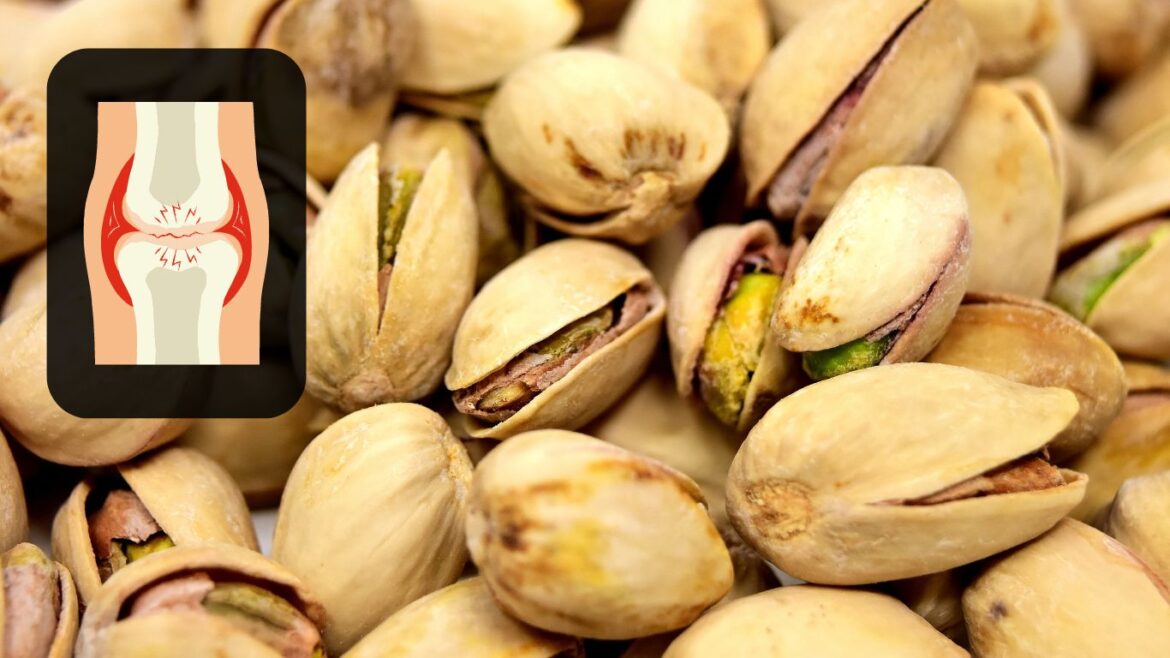When it comes to strengthening bones and improving overall skeletal health, most people immediately think of calcium-rich foods like milk, cheese, or leafy greens. However, one food that’s often overlooked in this regard is pistachios. These small, green nuts are loaded with essential nutrients that can play a significant role in maintaining bone health. This blog will delve into how pistachios contribute to bone strength, why they should be part of a balanced diet, and the science behind their benefits.
Are Pistachios Good for Bone Health? Exploring Their Role in Strengthening Bones
Nutrients in Pistachios That Promote Bone Health
Pistachios are a powerhouse of vitamins and minerals essential for bone development and maintenance. Let’s explore the key nutrients in pistachios that contribute to healthy bones:
- Calcium: Calcium is the most well-known mineral for bone health, and while pistachios aren’t as calcium-rich as dairy products, they do provide a decent amount. One ounce (about 49 pistachios) contains around 30 mg of calcium. Regular intake of pistachios can help in meeting your daily calcium needs, supporting bone density and reducing the risk of fractures.
- Phosphorus: Phosphorus works in tandem with calcium to build strong bones and teeth. Pistachios contain a significant amount of phosphorus, with one ounce providing around 137 mg, about 11% of the recommended daily intake. Phosphorus is critical for the formation of hydroxyapatite, the mineral that makes up the hard structure of bones.
- Magnesium: Magnesium is another key mineral for bone health, involved in converting vitamin D into its active form, which helps absorb calcium. Magnesium also plays a role in the structure of bones. Pistachios are rich in magnesium, with one serving offering about 34 mg, around 8% of the daily recommended value. A magnesium-rich diet has been linked to improved bone mineral density.
- Potassium: Potassium is often associated with muscle function, but it also plays an essential role in bone health. This mineral helps neutralize acids that can leach calcium from the bones, thereby preserving bone density. Pistachios are one of the top nut sources of potassium, with one ounce containing around 290 mg. Including pistachios in your diet can help maintain a balance of bone-protective minerals.
- Protein: Bones are not just made up of minerals; protein is also a key component of bone tissue. Pistachios contain about 6 grams of protein per ounce, making them a valuable source of plant-based protein. Adequate protein intake is necessary for maintaining bone mass, especially as we age.
Pistachios and Osteoporosis Prevention
Osteoporosis, a condition characterized by weakened bones and an increased risk of fractures, is a common concern as we age. While calcium and vitamin D are often emphasized in osteoporosis prevention, the minerals and nutrients found in pistachios also play a critical role.

- Phosphorus and Calcium Balance: A proper balance of calcium and phosphorus is necessary for bone strength. Pistachios provide both minerals in balanced amounts, supporting bone formation and reducing the risk of osteoporosis.
- Magnesium’s Role: Magnesium deficiency is linked to lower bone density, making individuals more susceptible to osteoporosis. The magnesium content in pistachios can help reduce the risk of bone-related diseases by maintaining bone mineral density and promoting the healthy turnover of bone cells.
The Antioxidant Advantage
In addition to their mineral content, pistachios are loaded with antioxidants such as vitamin E, carotenoids, and polyphenols. These antioxidants help reduce oxidative stress, which can weaken bones over time. Free radicals can damage bone cells and contribute to conditions like osteoporosis. By neutralizing free radicals, antioxidants from pistachios support long-term bone health.
Pistachios and Inflammation Reduction
Chronic inflammation has been linked to bone degradation and conditions such as arthritis and osteoporosis. Pistachios are rich in anti-inflammatory compounds, including phenolic compounds and healthy fats, which can help reduce inflammation and support bone health. This makes pistachios a great snack for individuals concerned with long-term bone protection, especially in inflammatory bone conditions.
How to Incorporate Pistachios into Your Diet for Better Bone Health
Including pistachios in your diet is easy and delicious. Here are a few ways to add them to your daily meals for a bone-health boost:

- As a Snack: A handful of pistachios can be a healthy, on-the-go snack that provides a quick source of bone-friendly nutrients.
- In Salads: Sprinkle chopped pistachios over salads for an extra crunch and a boost in magnesium, phosphorus, and protein.
- With Yogurt or Oatmeal: Top your yogurt or oatmeal with pistachios for a nutritious breakfast that supports bone health.
- In Smoothies: Blend pistachios into smoothies to add creaminess and nutrient density.
- In Cooking: Use pistachios as a crust for fish or chicken to add a nutty flavor while boosting the meal’s nutritional content.
Conclusion
Pistachios may not be the first food that comes to mind when you think about bone health, but their nutrient profile makes them a great addition to any bone-strengthening diet. With their rich content of calcium, phosphorus, magnesium, potassium, and protein, as well as their anti-inflammatory and antioxidant properties, pistachios can play an important role in maintaining strong bones and preventing bone diseases like osteoporosis. By including pistachios into your daily meals, you’ll not only enjoy their delicious flavor but also contribute to the long-term health of your bones. So, the next time you’re reaching for a snack, consider grabbing a handful of pistachios and giving your bones the nutrients they need to stay strong and healthy!
Also read: Top 5 Vegetables Rich in Calcium Content
